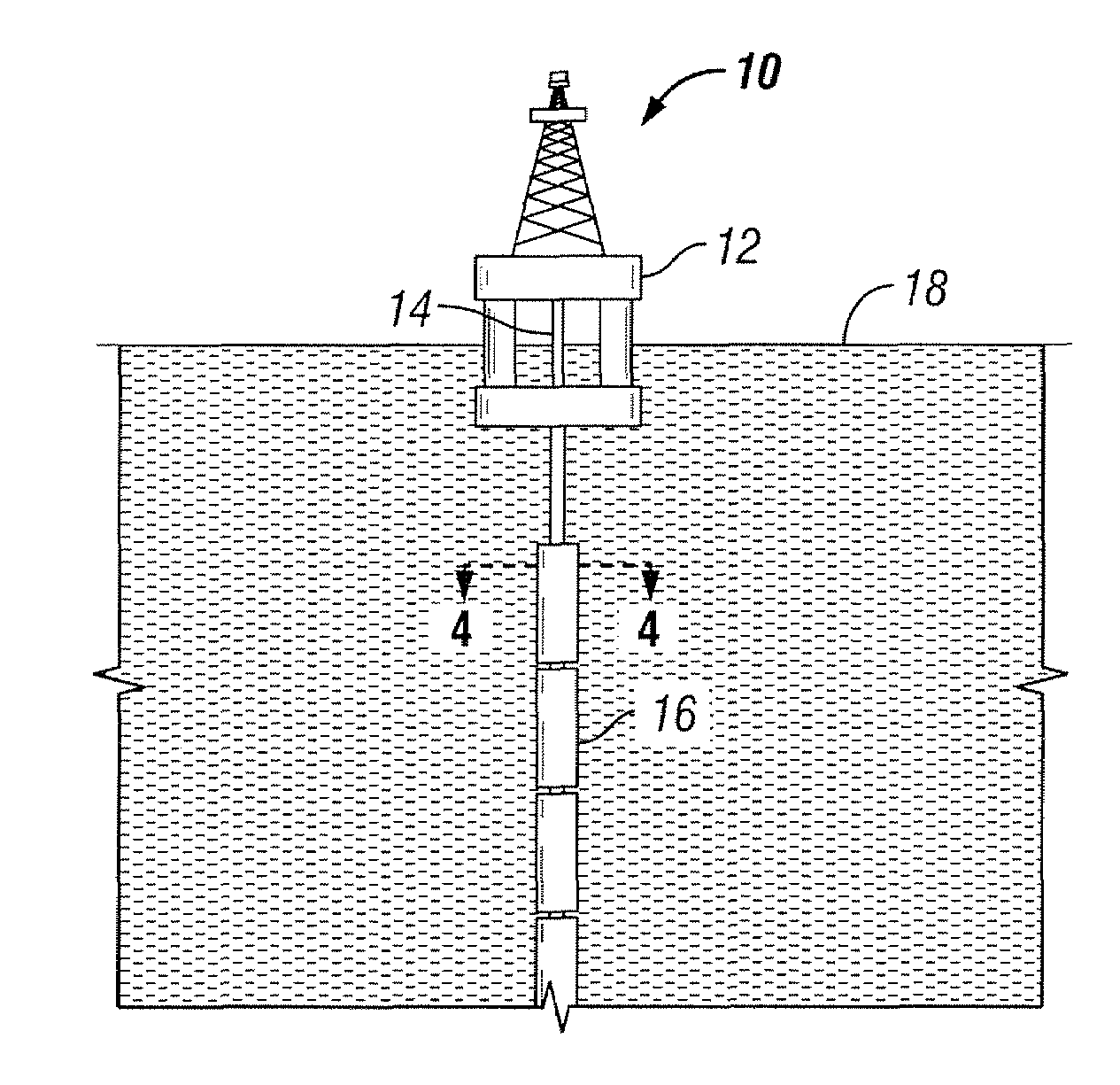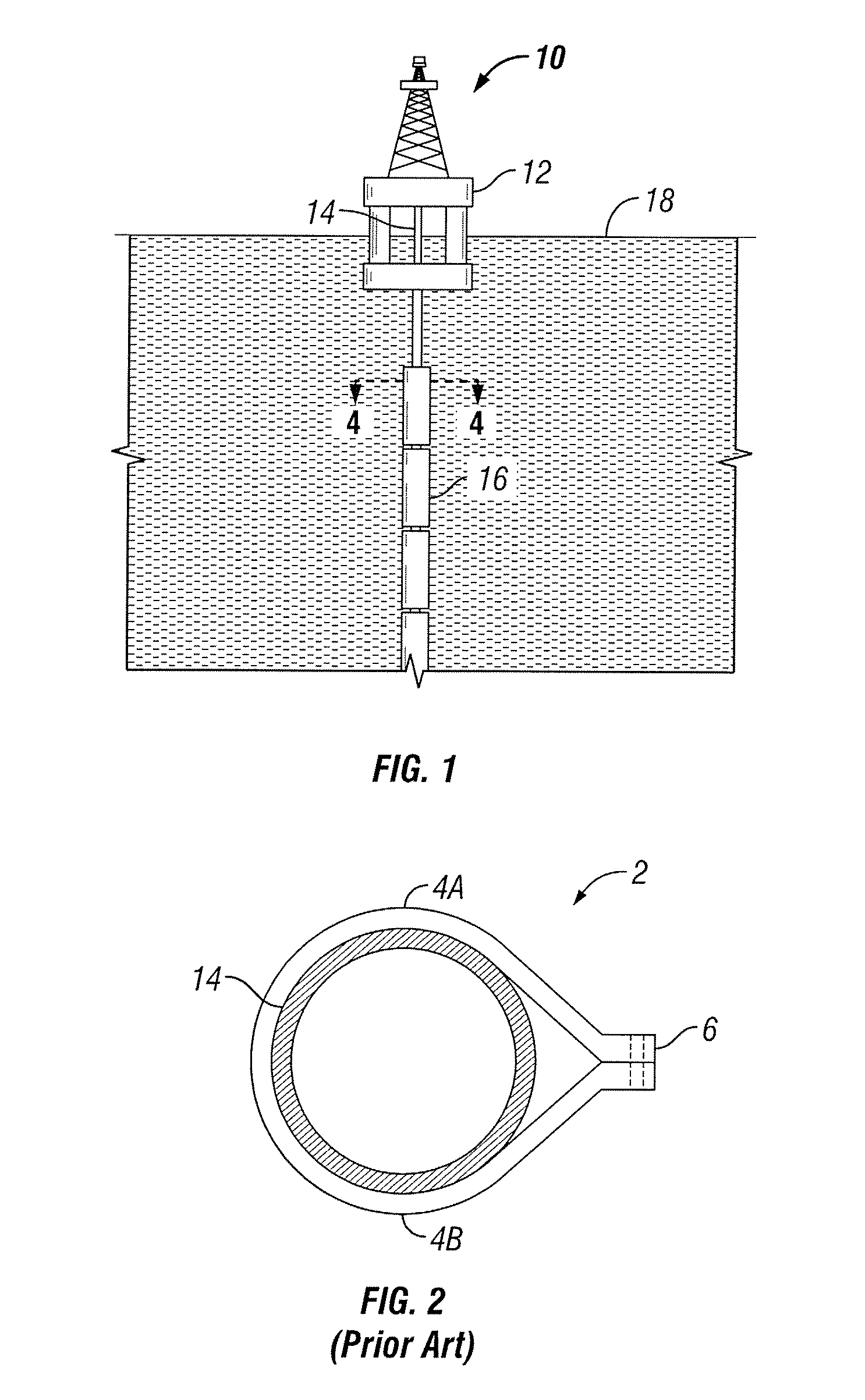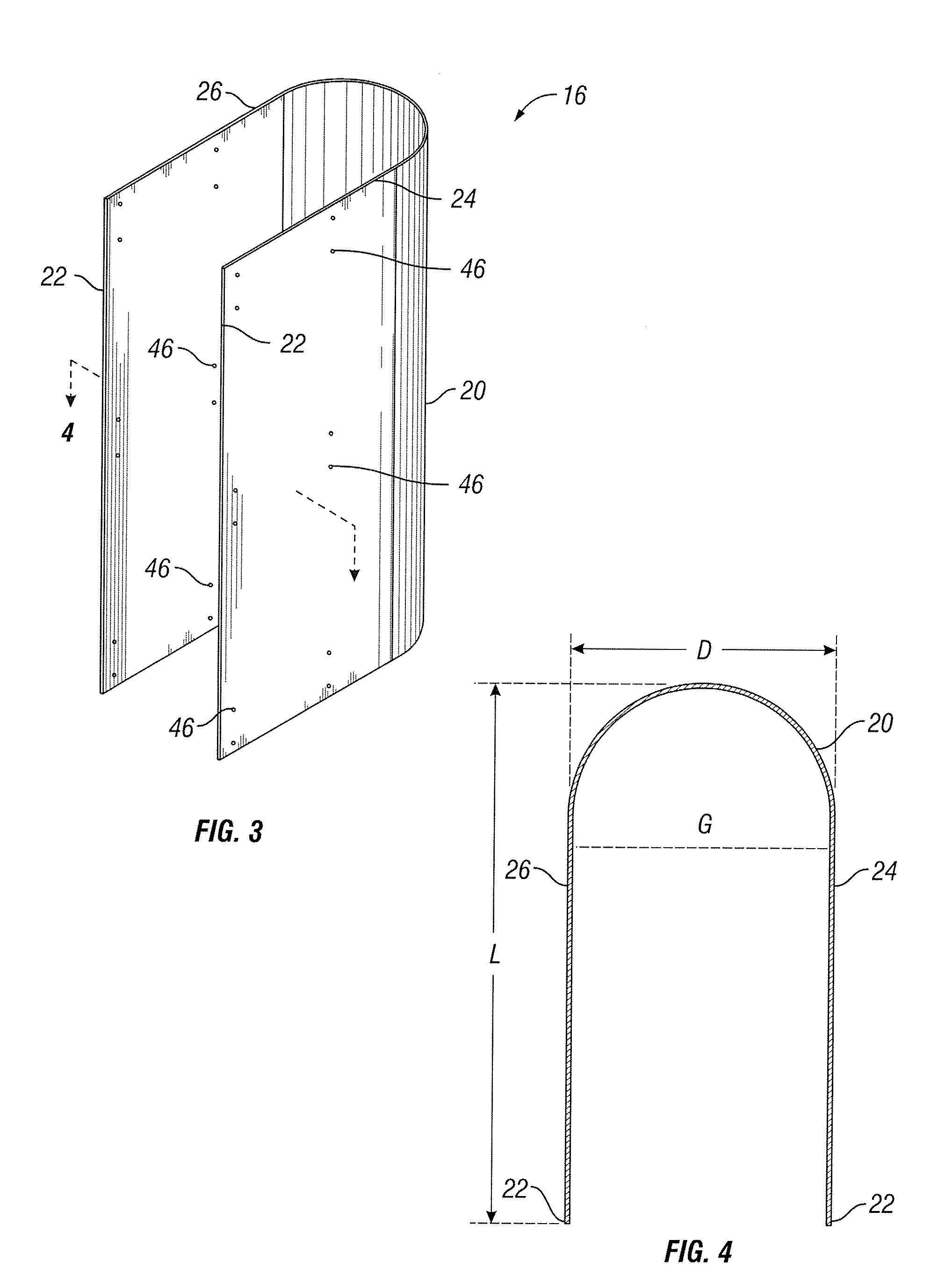Twin fin fairing
a twin fin and fairing technology, applied in the field of fairing, can solve the problems of threatening the structural integrity of the riser, the riser, the pipeline, etc., and reducing the energy transfer from the current to the riser, so as to reduce the vibration of the vortex and reduce the vibration. , the effect of reducing the vibration
- Summary
- Abstract
- Description
- Claims
- Application Information
AI Technical Summary
Benefits of technology
Problems solved by technology
Method used
Image
Examples
Embodiment Construction
[0048]The present invention is directed to rotating fairings that include specifically placed fins for the reduction of vortex-induced vibration (“VIV”) on pipes or other structural components immersed in fluid. As discussed above, when a solid object is exposed to fluid flows vibration results from vortices shed off the object when the fluid flows by it. The flow pattern around a cylinder can be characterized by the Reynolds Number (Re) of the incident flow and the location where flow separates from the cylinder surface which depends on whether the boundary layer is turbulent or laminar. In the subcritical range, the Reynolds number range is 300
PUM
 Login to View More
Login to View More Abstract
Description
Claims
Application Information
 Login to View More
Login to View More - R&D
- Intellectual Property
- Life Sciences
- Materials
- Tech Scout
- Unparalleled Data Quality
- Higher Quality Content
- 60% Fewer Hallucinations
Browse by: Latest US Patents, China's latest patents, Technical Efficacy Thesaurus, Application Domain, Technology Topic, Popular Technical Reports.
© 2025 PatSnap. All rights reserved.Legal|Privacy policy|Modern Slavery Act Transparency Statement|Sitemap|About US| Contact US: help@patsnap.com



